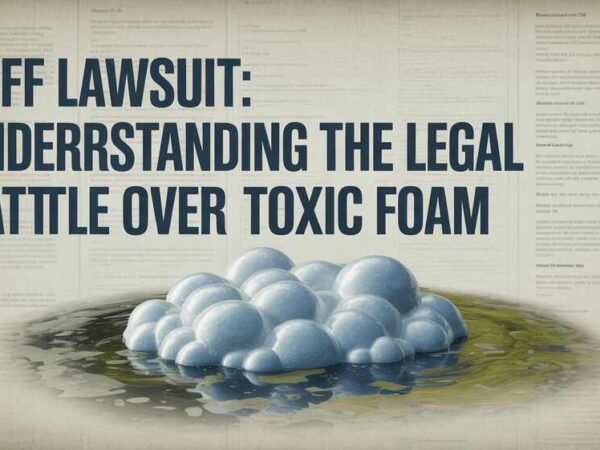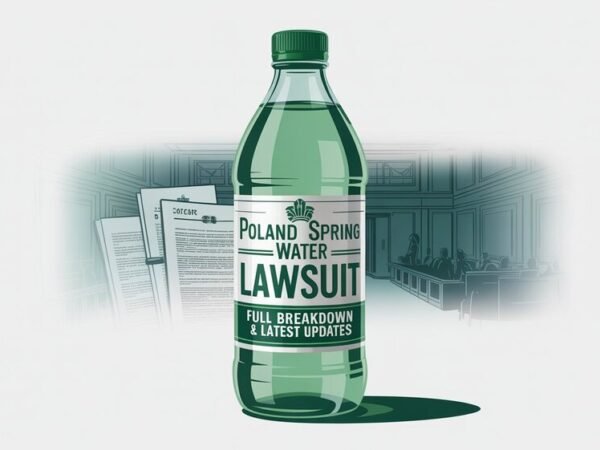What Is the Walmart Class Action Lawsuit?
A class action lawsuit is a legal process in which a group collectively brings a claim to court against a defendant, typically a large corporation. It is often used when many individuals have suffered similar harm from the actions or policies of the defendant. In 2024, the retail giant Walmart found itself at the center of multiple class action lawsuits, with legal challenges spanning overpricing, deceptive marketing, product mislabeling, and employee rights violations. These lawsuits reflect growing scrutiny of corporate practices and the increasing willingness of consumers to demand accountability. The current wave of litigation surrounding Walmart is not isolated; it represents a broader trend of holding massive corporations responsible for unfair or unethical business conduct.
Why Walmart Is Being Sued in 2024
The reasons Walmart is being sued in 2024 are varied, yet they all converge on a central theme: consumer protection. The main allegations revolve around deceptive pricing strategies, false advertising, and discriminatory employment practices. Walmart is accused of charging customers more at checkout than the prices listed on store shelves, mislabeling the purity of products such as avocado oil, and even terminating employees for using legally prescribed medical cannabis. These lawsuits highlight a widespread concern among consumers and workers that Walmart’s operational practices may not always align with ethical standards or legal requirements. Each case brings forward specific areas where plaintiffs believe Walmart failed to treat customers and employees fairly and transparently.
Walmart Weighted Goods Lawsuit Explained
One of the most high-profile lawsuits against Walmart involves allegations that the company overcharged customers for weighted grocery items such as meats, seafood, and certain bagged fruits and vegetables. Plaintiffs claim that Walmart systematically inflated the prices of items sold by weight, leading to higher costs for unsuspecting shoppers. The lawsuit covers purchases made between October 19, 2018, and January 19, 2024, and has resulted in a proposed $45 million settlement. Eligible customers—those who purchased weighted goods without a loyalty account or receipts—can receive compensation depending on the number of items bought. Those with proof of purchase are eligible for even higher reimbursements. This case underscores the importance of accurate pricing and transparent sales practices in the retail industry.
Step-by-Step: How to File a Claim for the Walmart Settlement
Filing a claim in the Walmart class action lawsuit is straightforward but requires attention to detail. First, affected consumers should visit the official settlement website. They can complete a claim form online or download one to submit by mail. The deadline for claims is June 5, 2024. The amount they are eligible to receive will vary depending on whether the claimant has proof of purchase. Those without evidence may receive a set payment tier based on estimated item counts, while those with receipts or transaction records could receive more significant amounts. Payment distribution is expected via electronic transfer, check, or prepaid card. Consumers must act promptly and provide accurate information to ensure they receive any compensation they are due.
Walmart Avocado Oil Mislabeling Class Action
Another significant legal challenge facing Walmart concerns its Great Value-branded avocado oil. The lawsuit alleges that what is marketed as 100% pure avocado oil contains a blend of other less expensive oils. This alleged misrepresentation is a serious issue, particularly for health-conscious consumers who rely on accurate labeling to make informed purchasing decisions. Plaintiffs claim that independent testing revealed the product’s presence of soybean and other vegetable oils. The case is being pursued under consumer protection laws prohibiting deceptive marketing practices. If proven, the mislabeling could violate trust and safety, potentially resulting in financial penalties and permanent changes to Walmart’s product labeling standards.
Walmart Pricing Fraud: Shelf vs. Checkout
One of the more alarming lawsuits involves accusations that Walmart routinely charges customers more at the register than the prices advertised on shelves. The lead plaintiff, Yoram Kahn, alleges this practice constitutes deceptive trade and unfair business conduct. Although an earlier attempt to dismiss the lawsuit was successful, the 7th U.S. Circuit Court of Appeals has since reinstated the case, allowing it to proceed. This development marks a pivotal moment in the legal landscape, signaling that courts are increasingly receptive to consumer complaints about everyday retail experiences. The outcome of this case could set a precedent for how pricing transparency is handled not just by Walmart but across the entire retail sector.
Employment Discrimination Lawsuit: Walmart & Cannabis Use
Beyond its consumer-facing controversies, Walmart is also embroiled in an employment-related lawsuit involving cannabis use. Filed by Erick Zanetich, the lawsuit alleges that Walmart wrongfully terminated him for using legally prescribed medical cannabis outside of work hours. The 3rd U.S. Circuit Court of Appeals ruled to allow the case to move forward, interpreting New Jersey’s laws on cannabis bias as applicable in the employment context. This ruling could have far-reaching consequences for how companies handle drug policies, particularly in states where cannabis is legal. It raises critical questions about employee privacy, medical accommodations, and the scope of employer control over off-duty behavior.
How Walmart Lawsuits Impact Consumers
The implications of these lawsuits go far beyond courtrooms. For millions of Walmart customers, the outcomes could mean direct financial restitution, improved pricing transparency, and more ethical product labeling. The lawsuits highlight the importance of workplace rights and fair treatment for employees. More broadly, these legal challenges spotlight the necessity of corporate accountability in a consumer-driven economy. Whether it’s a few dollars overcharged at checkout or the right to use legal medication without fear of job loss, the cases against Walmart exemplify the everyday issues that affect real people. The cumulative effect of these lawsuits may lead to systemic changes within Walmart, influencing policy, training, and operational oversight.
Other Active Walmart Class Actions You Should Know
In addition to the significant lawsuits, Walmart faces several other class action complaints in various jurisdictions. These include misleading eco-friendly product claims, wage and hour disputes with employees, and accessibility challenges related to its online platforms. Each new case adds to the legal pressure on the company and may contribute to a more significant reform or enforcement action pattern. As more consumers and advocacy groups become aware of these legal options, further lawsuits will likely emerge in 2025 and beyond. Keeping tabs on these developments can help consumers make informed decisions about where and how they shop.
Stay Informed: Protect Your Consumer Rights
Staying informed about class action lawsuits is not just about receiving a payout—it’s about knowing your rights and standing up for fair treatment. Consumers can sign up for class action notifications through legal websites or advocacy groups. Legal aid organizations and consumer protection sites often provide updates on settlement deadlines, eligibility criteria, and new case filings. Being proactive ensures that individuals don’t miss out on compensation and are aware of patterns in corporate behavior that could affect them. Moreover, understanding deceptive pricing or labeling tactics can help shoppers make more intelligent choices and demand higher standards from trusted brands.
Conclusion
The Walmart class action lawsuit landscape in 2024 reflects a broader movement toward holding large corporations accountable for their actions. From pricing fraud to product mislabeling and employee discrimination, these cases shed light on practices that may have gone unchecked for years. Consumers and employees demand justice, and the courts are beginning to listen. Whether you’re a frequent Walmart shopper or someone concerned with corporate ethics, these lawsuits matter. They represent not just financial disputes but more profound questions about fairness, transparency, and the balance of power in the modern marketplace. If you believe you’ve been affected, now is the time to act—learn your rights, file your claim, and stay vigilant as new developments unfold.
Do Read: Titan Submersible Lawsuit: Legal Fallout and Industry Reckoning













